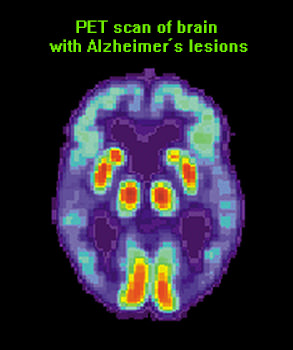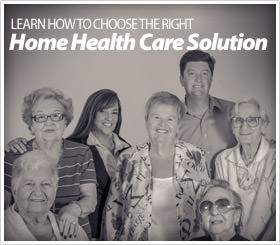In-Home Safety and Care for People with Alzheimer’s Disease
Alzheimer’s Disease is a progressive neurologic disease of brain leading to loss of neurons and loss of cognitive abilities including memory or reasoning that becomes severe enough to imped social or occupational functioning. During course of the disease plaques and tangles develop in the brain. These plaques and tangles cause the brain cells to die. Alzheimer’s is the most common form of dementia.
Dementia is a general term for decline in mental ability severe enough to interfere with daily life. Alzheimer’s is the 6th leading cause of death. Approximately one person every 69 seconds is diagnosed with Alzheimer’s and 1 in 3 seniors die with the disease. There is no cure for the disease. However there are various medications that can help slow down the progression of the disease and others that can improve the signs and symptoms, such as sleeplessness, wandering, depression, anxiety and agitation.
The Alzheimer’s Association has listed Ten Warning Signs of Alzheimer’s disease.

- Memory changes that disrupt daily life such as forgetting important dates or events.
- Challenges in planning or solving problems such as following a familiar recipe or keeping track of monthly bills.
- Difficulty completing familiar tasks at home, at work or at leisure such as driving to a familiar location.
- Confusion with time or place such as what season we are in or remembering where they are.
- Trouble understanding visual images and spatial relationship difficulty reading or judging distance.
- New problems with words or speaking or writing such as having problems finding the right word or calling things by the wrong name.
- Misplacing things and losing the ability to retrace steps to find missing items.
- Decreased or poor judgment – May give large amounts of money to telemarketers.
- Withdrawal from social, family and work activities.
- Change in mood and personality such as becoming confused, depressed, fearful or anxious.
If any of these signs or symptoms is present, it is important to see a physician. The physician will perform some tests to rule out other conditions that have symptoms that are also present in Alzheimer’s.
The following conditions may mirror symptoms of Alzheimer’s:
- Anxiety
- Brain tumor
- Depression
- Infection
- Thyroid problems
Home Health Care for Alzheimer’s
Our Home Health team of Alzheimer trained professionals will coordinate and develop with you and your family a plan of care to maintain independence of daily routines with in the comforts of home. The team includes skilled nurses that can provide teaching and training for families and other caregivers on a medication management program to ensure compliance with their drug regimen. Most of the medications prescribed are for memory loss symptoms, behavioral changes such as aggression and sleep problems caused by the disease.
The skilled nurse will also instruct families and caregivers on other factors that can affect behavioral issues and will provide them with other strategies to manage behavioral symptoms that may occur with the disease.
Family Caregivers Must Stay Healthy
If you are a family member caring for someone with Alzheimer’s it means dealing with many life changes that you may have never anticipated. You can still live a meaningful and productive life by taking care of your physical and emotional health needs by engaging in activities you enjoy and by spending time with family and friends.
The best gift a family caregiver or spouse can give their loved one with Alzheimer’s is the gift of taking care of themselves so that they may continue to be healthy part of their love one’s life. The Home Health Aide is an integral part of the care for your and your loved one with Alzheimer’s. The Home Health Aide can provide assistance with bathing, feeding, dressing, walking, light housekeeping, errands, driving and companionship all in the familiar surroundings of home.
What to Do if Your Loved One May Be Suffering Dementia
If you suspect that your loved one is experiencing Dementia. Please contact Allegiance Home Health. Our team of professionals will coordinate with your physician to determine whether Alzheimer’s is causing these effects.
If needed, our Alzheimer’s team will provide guidance on new medications, proper dosage, and identifying and managing side effects. Our home safety evaluation identifies potentially dangerous home hazards and helps eliminate them. Our occupational therapists can work with you to develop techniques to compensate for some of the memory loss.
Allegiance Home Health knows how to manage the medical and personal care needed to safely keep your loved one at home as long as possible. To learn more about Alzheimer’s care, please call Allegiance Home Health today.


